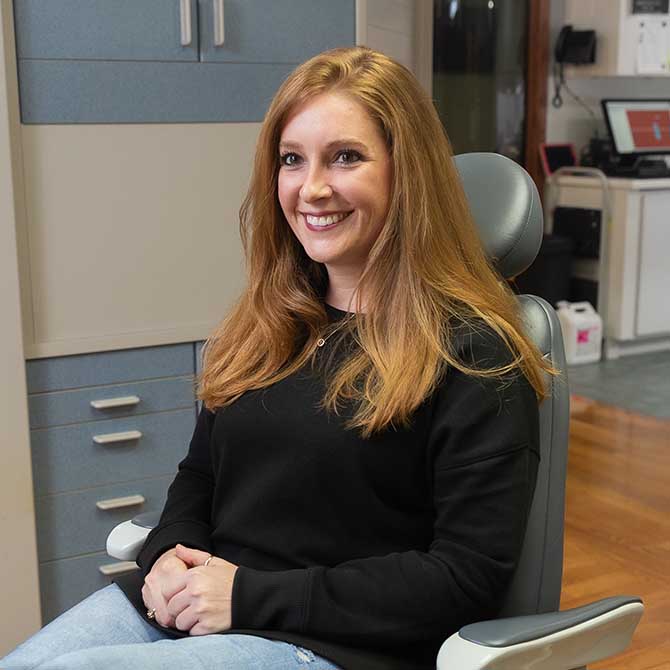So every tooth really has a limit of what we can do in terms of dentistry. When we get beyond that limit, once in awhile, the best thing we can do is get rid of a tooth. And doing a tooth extraction often seems scary or sounds scary, but many times I have patients come back and go, “You know, it was a little tender, but I barely noticed,” as they go through the healing process. So teeth have limits and our materials aren’t as strong as just the natural tooth itself, and that includes crowns or root canals or anything. You know, when we hit that limit, it is time to discuss the best thing here is to get rid of it. So when it comes to almost any procedure in the office, our entire team is very, very understanding that sometimes we say things that other people aren’t exposed to on a daily basis like we are. So reiterating things through videos, through pictures, through discussion. And many times the real conversation happens when the dentist leaves the room. And so, our team is amazing at really following through and making sure the understanding’s there for what, when and how, but what the options moving forward are. Say a tooth needs to go or something like that. You know, what’s the timeframe and how do we get to something else?
Strengthen Your Smile With Surgical Procedures
Losing a tooth or dealing with dental pain will put your smile at risk. At Oelwein Dental Associates, our experienced dentists only recommend surgery if necessary to restore your mouth function. For example, if you want dental implants, you may need dental surgery to strengthen your jawbone. It’s often required for patients who have worn dentures or lived with widespread tooth loss.
Depending on your unique dental needs, we may recommend:
- Tooth Removal – If you have an infection that has put other teeth at risk, we’ll gently remove the tooth. After the extraction, we’ll discuss our replacement options. You can also remove teeth to make room for dentures or other restorations.
- Wisdom Teeth Removal – We can remove these third molars before they harm your oral health.
- Bone Grafts – You can replenish the bone in your jaw with a grafting procedure. It’s sometimes necessary before you can get implants placed in your jaw.
- Ridge Augmentation – This procedure recreates the natural contour of your gums and jaw. It’s a bit more involved than a bone graft.
- Sinus Lift – You may need to make room for your implants in your upper jaw. We can raise the sinus area and replenish any bone loss.
It’s our goal that you won’t need to visit an outside oral surgeon. There’s no need to feel nervous about your visit! Dental sedation is available. We use laughing gas for a gentle sense of calm. For more severe anxiety, you can take an oral sedative.
Call 319-209-9295 if you need oral surgery in Oelwein. You can also schedule online.

